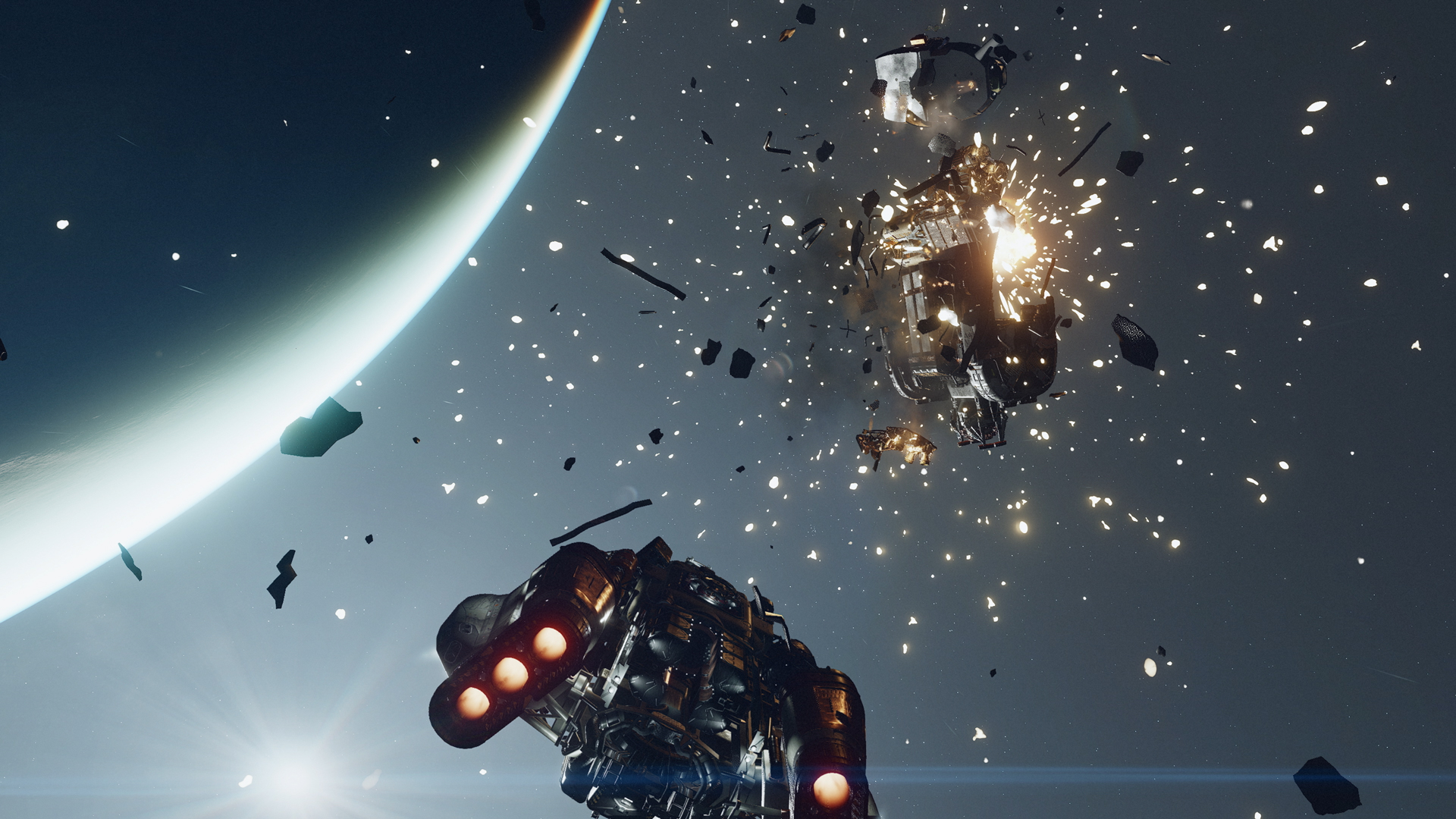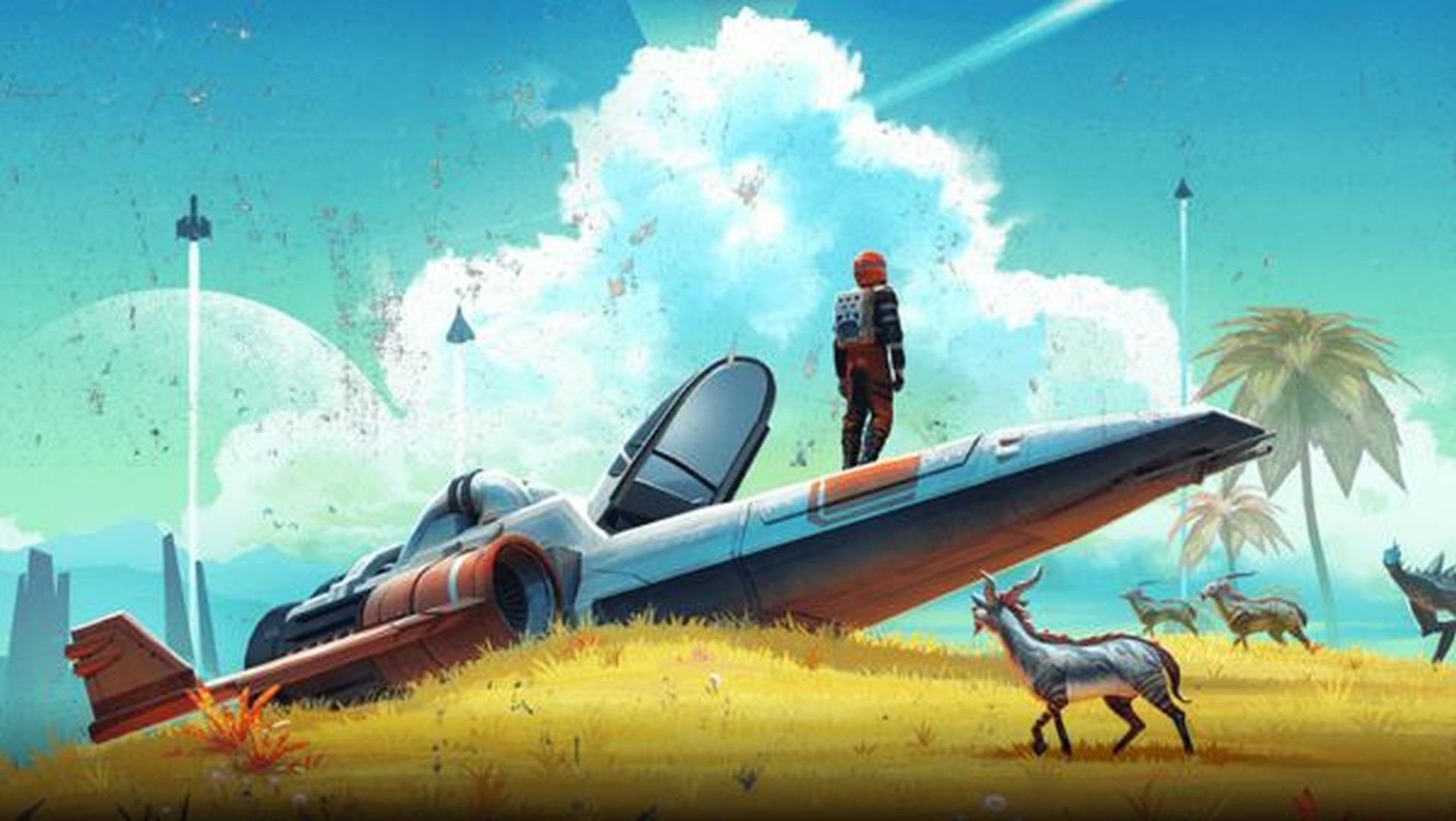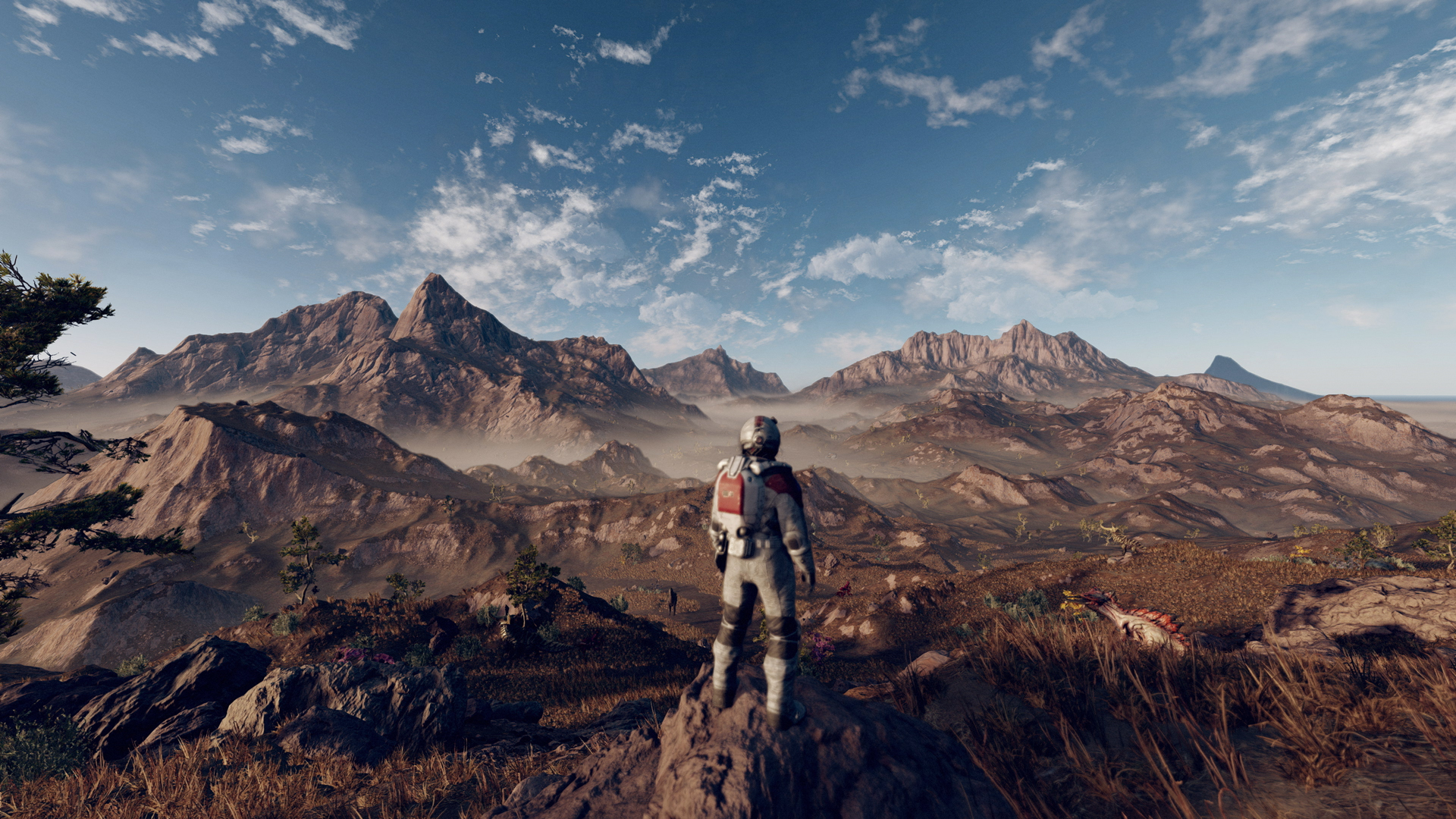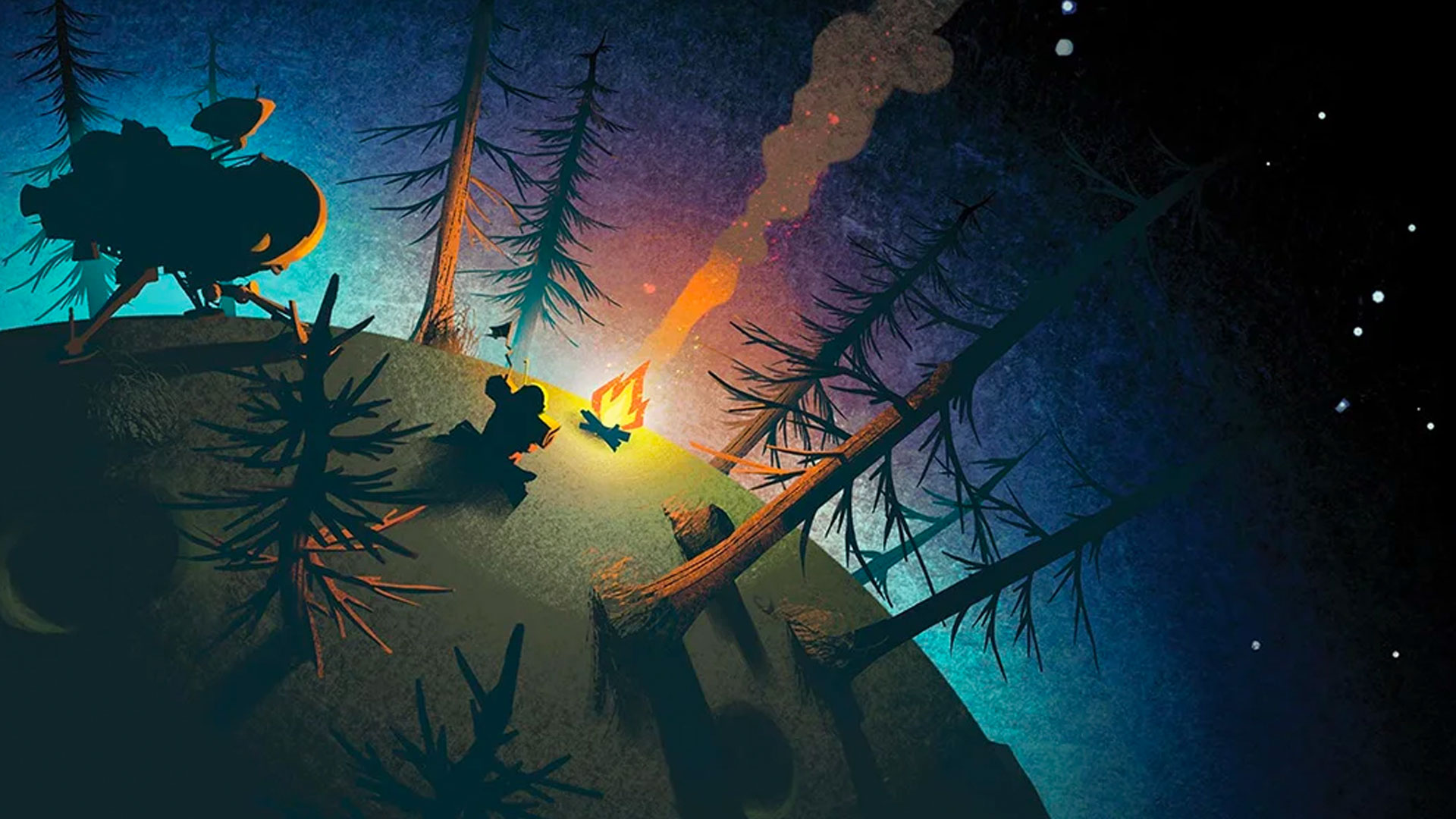A lifelong fascination with space is enough to get me hyped for Starfield
Space is exciting, fascinating, and terrifying – can Bethesda leverage that in Starfield?

Starfield is about to let us explore one of the most fascinating and varied settings in games: Space. In Bethesda's upcoming RPG set among the stars, we'll be taking on the role of a member of an organization known as Constellation that is "committed to uncovering the mysteries of the galaxy." The promise of going on a journey to learn more about the far reaches of the Milky Way as a space-faring adventurer is one I can't possibly pass up. But my excitement about the prospect of venturing out into the cosmos is certainly not unique to Starfield. Over the years, there's been no shortage of games that take place in space. So many of them have effectively drawn me into their orbit, and I can't wait to see what Bethesda's take on the setting will deliver.
The fact that I'm just as excited as ever to wander out into the great void above in Starfield has made it all the more clear to me that it's one backdrop I never tire of. This revelation is not so surprising when you consider that space is the ultimate playground for creativity – it presents no end of possibilities. You can see this reflected in the fact that so many games that take you out into the galaxy, or set you off on an intergalactic adventure, can each offer something very different in terms of style, tone, and playstyles. From exploring wonderfully creative alien worlds to unraveling mysteries, and even in some cases having terrifying encounters, space can and does set the stage for so many different kinds of rich experiences across a variety of genres.
The unknown


Just because Starfield has 1000 planets doesn't mean it'll have 1000 planets worth of content
There's always been an appeal to going to outer space in games. After all, there's nothing quite as exciting as the prospect of heading out into the great unknown to discover what's out there beyond the planet we call home. My own fascination with space started at an early age – I'd pour over a little book about Nasa shuttle flights and daydream about what life would be like if I could explore unknown planets in the galaxy (like a crew member on the USS Enterprise in Star Trek: The Next generation). I'm sadly not an astronaut by any stretch of the imagination, but happily, there are plenty of games that will let me be one. Of course, my own interest in the space is a sentiment many share – it feels like an innate condition of being human to want to learn more about what lies beyond the realms of what we know. As curious creatures, we want to discover what's out there and better understand the incomprehensibly massive expanses of the universe.
It's hard to wrap your head around just how extensive the Milky Way is let alone the universe at large - something the Starfield map is doing it's best to emulate - but it's also why space as a setting provides such a broad and engaging stage for the world of games. Since so much is unknown, there's endless freedom to create a myriad of experiences where the only thing we can expect is the unexpected. No Man's Sky, for example, tries to account for the overwhelming scope of the universe by procedurally generating it. Since each player can encounter something different and write their own story in the stars, Hello Games captures a sense of wonder and discovery that makes space as a setting so appealing. You never know just what you might encounter next, from alien creatures to strange plant life and a variety of different terrains.
In No Man's Sky alone, you can see just how visually varied the locales and environments of space can be, but you can also see this reflected in a wide range of different games too - Astroneer captures an otherworldly feel with its vibrant colors and low poly style, while the Mass Effect series puts more of a focus on the environment of the Normandy ship you use to navigate through the galaxy. There's so much creative freedom on offer when it comes to bringing the cosmos to life, from the stars in the galaxy to the planets and locations within it, and it's always interesting to see how each game interprets it.
On the other hand, the overwhelming size and scope of space can sometimes translate over to the experience of playing a game that tries to capture it. When Bethesda announced that Starfield is set to give us 1,000 planets to explore, many expressed concerns surrounding the idea, and I too have concerns about just how big it's promising to be. As an RPG fan, I find myself being drawn to elements such as character creation and the ability to customize my own ship far more than having so many planets to explore - I hope this will allow me to immerse myself in the galaxy as a space adventurer of my own making. Still, I'm curious to see what space exploration will be like in Starfield and discover for myself just how Bethesda has tried to bring it to life.
Mystery

The diversity of the setting doesn't just begin and end visually, though. It can also deliver in a variety of ways in terms of tone and atmosphere, lending itself to a host of different genres. There's certainly a sense of wonder about space, but it's also quite unnerving to head into the unknown where even gravity is working against you. It's no wonder, then, that it has become a setting that feels right at home in the world of horror and survival. Games like Dead Space capture a terrifying sense of isolation and danger in close quarters within a space station, just as Alien Isolation also creates this kind of atmosphere with the ever-present threat of the Xenomorph.
Sign up to the GamesRadar+ Newsletter
Weekly digests, tales from the communities you love, and more
When it comes to games, there are no set rules about adhering to a sense of realism, but if you're going to bring strange alien lifeforms into the equation, deep space is the perfect place for them. It also allows for more experimentation and serves a great background for strange, otherworldly situations and bizarre scenarios that keep you on your toes. Outer Wilds, for example, sees explore an evolving solar system in short spaces of time as you try to get to the root of a time-looping mystery. The way it draws from that feeling of not quite knowing what to expect feels very fitting, and it once again demonstrates how space can set the scene for so many varied experiences.
From RPGS and city builders to horror, survival, and psychological thrillers, there are endless ways to make use of a setting that's so massive in size and scope. There's also always going to be an undeniable allure to space that can't quite be matched. Since we're still learning more all the time, and so much of it is unknown, the possibilities of where it can take us and what we can do in space in the world of video games is limitless. It's still, in my opinion, one of the most exciting and appealing settings, and I can't wait to see what it holds for us when we lift off into Starfield in 2023.
A fan of exploring the stars above, too? Check out our pick of the best space games.

I started out writing for the games section of a student-run website as an undergrad, and continued to write about games in my free time during retail and temp jobs for a number of years. Eventually, I earned an MA in magazine journalism at Cardiff University, and soon after got my first official role in the industry as a content editor for Stuff magazine. After writing about all things tech and games-related, I then did a brief stint as a freelancer before I landed my role as a staff writer here at GamesRadar+. Now I get to write features, previews, and reviews, and when I'm not doing that, you can usually find me lost in any one of the Dragon Age or Mass Effect games, tucking into another delightful indie, or drinking far too much tea for my own good.


